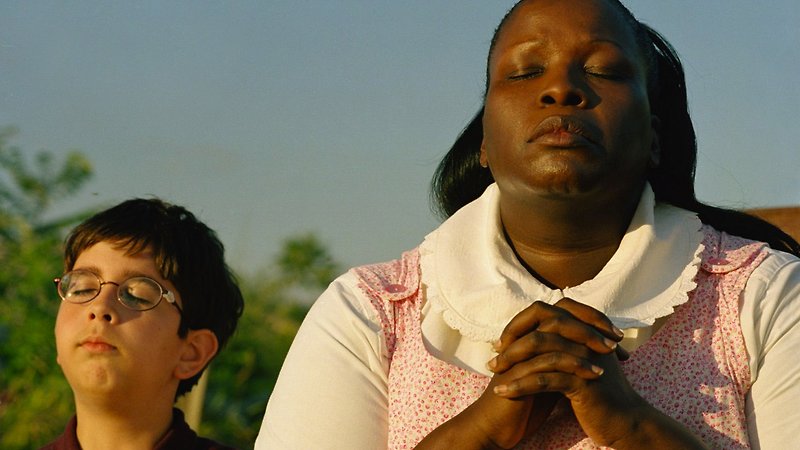Todd Solondz (Happiness) puts the terminally uncool at the centre of his sick comic pictures of American suburbia. This time it’s 12-year-old Aviva whose sole ambition in life is to have a baby. “A demented screwball dream.” — Entertainment Weekly

Screened as part of NZIFF 2005
Palindromes 2004
Todd Solondz (Happiness, Welcome to the Dollhouse) puts the terminally uncool at the centre of his sick, comic pictures of American suburbia. Uncertainty about his compassion – and our own – for his pear-shaped protagonists nags away at us while we watch these movies, which is to say that we apprehend that he does, on some level actually identify with them. His latest provocation, Palindromes, concerns 12-year-old Aviva, whose sole ambition in life is to have a baby. Successfully impregnated in a grotesquely perfunctory bout with a boy not much older than herself, she is forced to have an abortion by her hysterical parents. Her mother (the always vivid Ellen Barkin) tells her the tale of how she herself had an abortion (‘I took care of little Henry’) for largely financial reasons, a decision which she says, has greatly enhanced Aviva’s opportunities in life. Aviva flees and, like a babe in the woods, finds refuge with the Sunshine Family, a happy household of Christians with disabilities – the kind of Christians who assassinate abortionists and don’t take kindly to the ‘sluts’ who seek their services. Pro-choicers who are no-choicers vs pro-lifers who kill: Todd Solondz sure ain’t picking favourites in America’s new civil war.
In his boldest formal move he has a succession of actresses (and one actor) or varying colour and girth take turns at playing Aviva, so that we can ascertain whether our prejudices about her appearance affect identification with his abused and clueless heroine. (Each Aviva maintains the same quiet, wounded voice and tremulous fragility.) The result is certainly memorable, an episodic comic pageant of pitiable dimwits preyed on by moralistic monsters. There’s never a moment of communion between any two characters – except when the jolly Sunshine Family express their solidarity in an anti-abortion song and dance routine – and the overall effect is bleak indeed. But should Solondz’s nihilism ever cease to amaze, you can count on him to rile you back to attention by making you laugh at one of his perfectly pitched, totally tasteless zingers. — BG